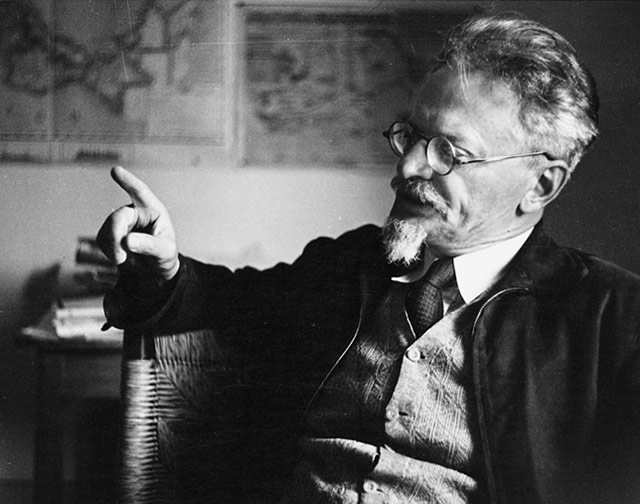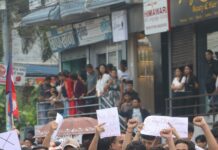10 December 1930
As part of our series of short archive posts we reproduce this letter by Leon Trotsky to Max Shachtman clarifying his stance over the so-called tactic whereby China’s unconsolidated fledgling Communist Party (CCP) was dissolved into Chiang Kai-Shek’s nationalist capitalist party, the Kuomintang (KMT). This anti-Marxist policy was adopted during the years of revolutionary upswing 1923-27. In the USSR, a bureaucratic counterrevolution led by Stalin was strangling working class democracy and breaking every Marxist principle of internationalism, internal party democracy, the need for independent workers’ parties and against blocs with capitalist parties. Trotsky always maintained that the ‘entry’ of the CCP into the KMT was a mistake which robbed Marxism of an independent political voice in the Chinese Revolutuon and the freedom to act independently. Instead it became a politically confused supporters’ club for the capitalist KMT leadership under the delusion that only the capitalist class could lead the revolution in China. The authority of the Russian Revolution was thus hijacked in order to suppress workers’ struggles. This tragic policy ended in disaster with Chiang Kai-Shek’s massacre of thousands of communist workers in April 1927 and the beginning of more than two decades of White Terror in China.
You are quite right when you point out that the Russian [Joint] Opposition, as late as the first half of 1927, did not demand openly the withdrawal from the Kuomintang. I believe, however, that I have already commented on this fact publicly somewhere. I personally was from the very beginning, that is, from 1923, resolutely opposed to the Communist Party joining the Kuomintang, as well as against the acceptance of the Kuomintang into the “Kuomintern”.
“Leave the KMT”
Radek was always with Zinoviev against me. The younger members of the [Left] Opposition of 1923 were with me almost to a man. Rakovsky was in Paris and not sufficiently informed. Up to 1926, I always voted independently in the Politburo on this question, against all the others.
In 1926, simultaneously with the theses on the Chinese Eastern Railroad which I have quoted in the Opposition press, I once more presented the formal proposal that the Communist Party leave the Kuomintang instantly. This was unanimously rejected and contributed a great deal to the baiting [by the Stalinists] later on. In 1926 and 1927, I had uninterrupted conflicts with the Zinovievists [so-called Leningrad Opposition, which in 1925 formed a bloc with Trotsky’s Left Opposition: the Joint Opposition] on this question.
Two or three times, the matter stood at the breaking point. Our center consisted of approximately equal numbers from both of the allied tendencies, for it was after all only a bloc.
At the voting, the position of the 1923 [Left] Opposition was betrayed by Radek, out of principle, and by Pyatakov, out of unprincipledness. Our faction was furious about it, and demanded that Radek and Pyatakov be recalled from the center. But since it was a question of splitting with the Zinovievists, it was the general decision that I must submit publicly in this question and acquaint the [Left] Opposition in writing with my own standpoint.
And that is how it happened that the demand was put up by us so late, in spite of the fact that the Politburo and the plenum of the Central Committee always contrasted my view with the official view of the [Joint] Opposition.
Principled politics
Now I can say with certainty that I made a mistake by submitting formally in this question. In any case, this mistake became quite clear only by the further evolution of the Zinovievists. At that time, the split with them appeared to the overwhelming majority of our faction as absolutely fatal. Thus, the manifesto [on China of the International Left Opposition] in no way contradicts the facts when it contends that the Russian Opposition, the real one, was against the Communist Party joining the Kuomintang.
Out of the thousands of imprisoned [by Stalin], exiled, etc., hardly a single one was with Radek in this question. This fact too I have referred to in many letters, namely, that the great majority of the capitulators [to Stalinism] were not sure and firm in the Chinese and the Anglo-Russian question. That is very characteristic!




